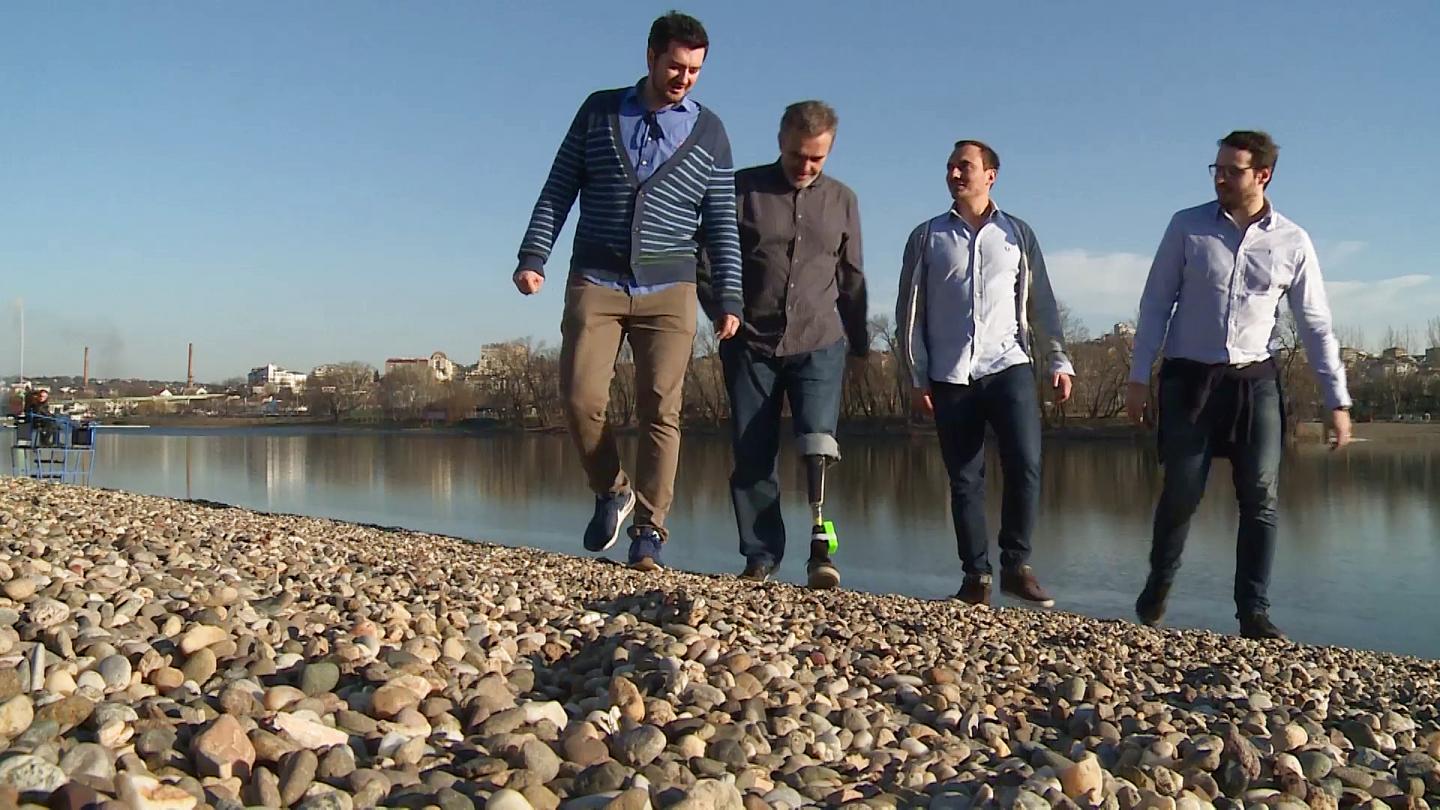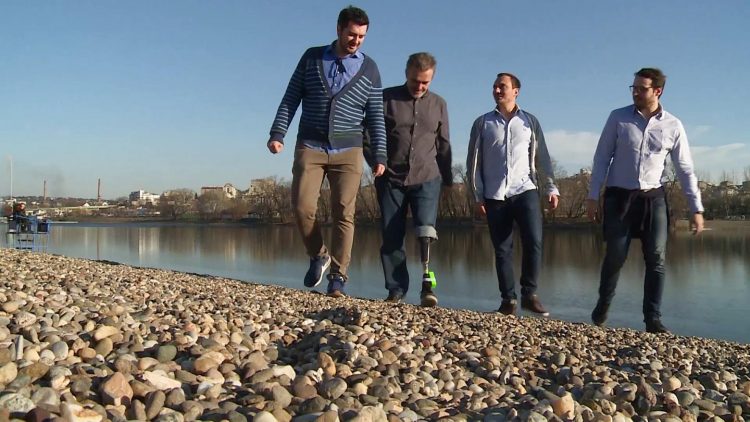
Credit: Federica Barberi
A research team has created a leg prosthesis for lower leg amputees that incorporates advanced neural stimulation, allowing it to recreate sensations of touch in the knee and foot that are missing in conventional prosthetic designs. The neuroprosthesis improved mobility and agility, prevented falls, and allowed for accomplishing complex tasks when tested in three lower leg amputees. Current leg prostheses do not restore the sensation of touch in lower leg amputees, who are instead forced to rely on limited sensory feedback from where the device touches the remaining limb. As a result, amputees contend with serious issues such as a higher risk of falls and poor mobility; furthermore, the lack of sensation means the prosthesis is usually perceived as an external object instead of as part of the body. To overcome these hurdles, Francesco Petrini and colleagues created a leg neuroprosthesis that mimics sensory feedback in real time by stimulating nerves in the remaining limb. Their device combines a commercially available lower leg prosthesis with sensors in the knee and insole that can provide sensations of pressure and balance. They tested the prosthesis in three patients with lower leg transfemoral amputations, who performed better on passive tasks such as touch recognition when the neurostimulation was active compared to when it was turned off. The subjects also performed complex tasks – such as climbing stairs and navigating an obstacle course – more quickly and with greater ease. Finally, the subjects displayed an increased sense of ownership and were less mentally occupied with the prosthesis during field tests, as evidenced by objective measurements and questionnaires.
###
Media Contact
Press Package Team
[email protected]
Related Journal Article
http://dx.





